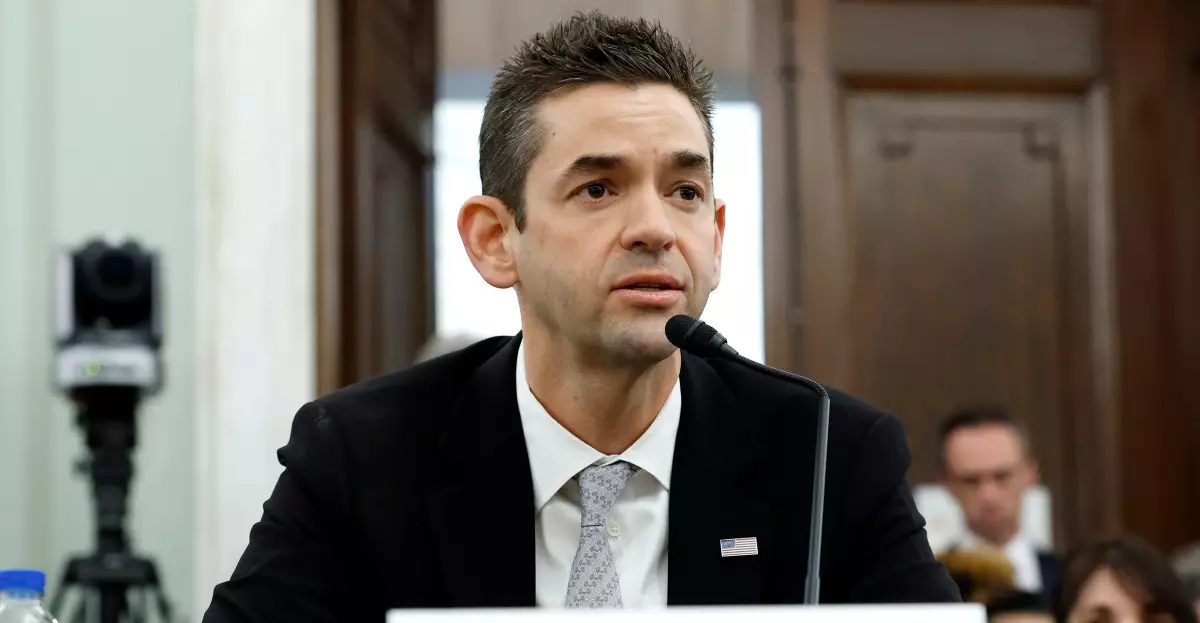The recent withdrawal of Jared Isaacman’s nomination to lead NASA highlights the complex intersection of political alliances and personal convictions that often shapes leadership decisions within governmental agencies. Isaacman, a millionaire entrepreneur known for his ventures with SpaceX, has emerged in the public eye as a figure of innovation in the aerospace sector. However, his previous political donations to Democratic candidates, including Senator Mark Kelly, have raised eyebrows within the Trump administration, ultimately leading to his nomination being reevaluated and subsequently rescinded. This scenario underscores the often unspoken expectation that influential positions within the federal government require not just competence and vision, but also an unwavering allegiance to the reigning political ideology.
The Chaotic Landscape of NASA’s Future
NASA has long been regarded as a beacon of scientific progress and exploration. However, with the recent news of proposed budget cuts of nearly 25%, the agency seems to be teetering on the edge of a financial abyss. The proposed drastic reduction, which would significantly impact scientific programs and thereby stifle ground-breaking research and ambitions for deep space exploration, is alarming. Organizations such as The Planetary Society have labeled these cuts as catastrophic, dubbing them “an extinction-level event” for the space agency. Such deep financial reductions could compromise years of taxpayer investment and push back critical missions that have the potential to revolutionize our understanding of the cosmos.
Leadership Void and Political Maneuvering
With Isaacman out of the picture, the search for a new leader who aligns perfectly with the President’s vision grows urgent. The administration’s emphasis on finding a candidate who mirrors Trump’s “America First” strategy signifies that future appointments will be less about expertise and more about political loyalty. This approach risks overlooking highly qualified candidates who might not perfectly align with the current administration’s policies or ideals. The void left by Isaacman can lead to further instability within NASA at a time when the agency should be striving for continuity and visionary leadership, especially as the realm of space exploration is increasingly competitive and vibrant.
Elon Musk’s Influence in the Political Arena
Elon Musk’s recent departure from his role in the White House provides a fascinating lens through which to view this political reshuffling. Musk, an influential figure in the aerospace sector through his company SpaceX, has demonstrated that the lines between business and government often blur, leading to far-reaching implications for policy making. His endorsement of alternative candidates within NASA may have played a part in shaping the perceptions of figures like Isaacman, as the administration navigates its options in a highly politicized environment. Musk’s ability to sway public opinion is matched only by the consequences he faces in political landscapes, leaving many to question just how intertwined corporate interests are with governmental authority.
The combination of political donations, budget forecasting, and an evolving leadership structure creates a complex narrative that will undoubtedly shape NASA’s trajectory and its role in continuing human advancement in space. The implications of such a situation extend beyond agency management—they reflect a broader political ethos that could redefine the American vision in the final frontier.

